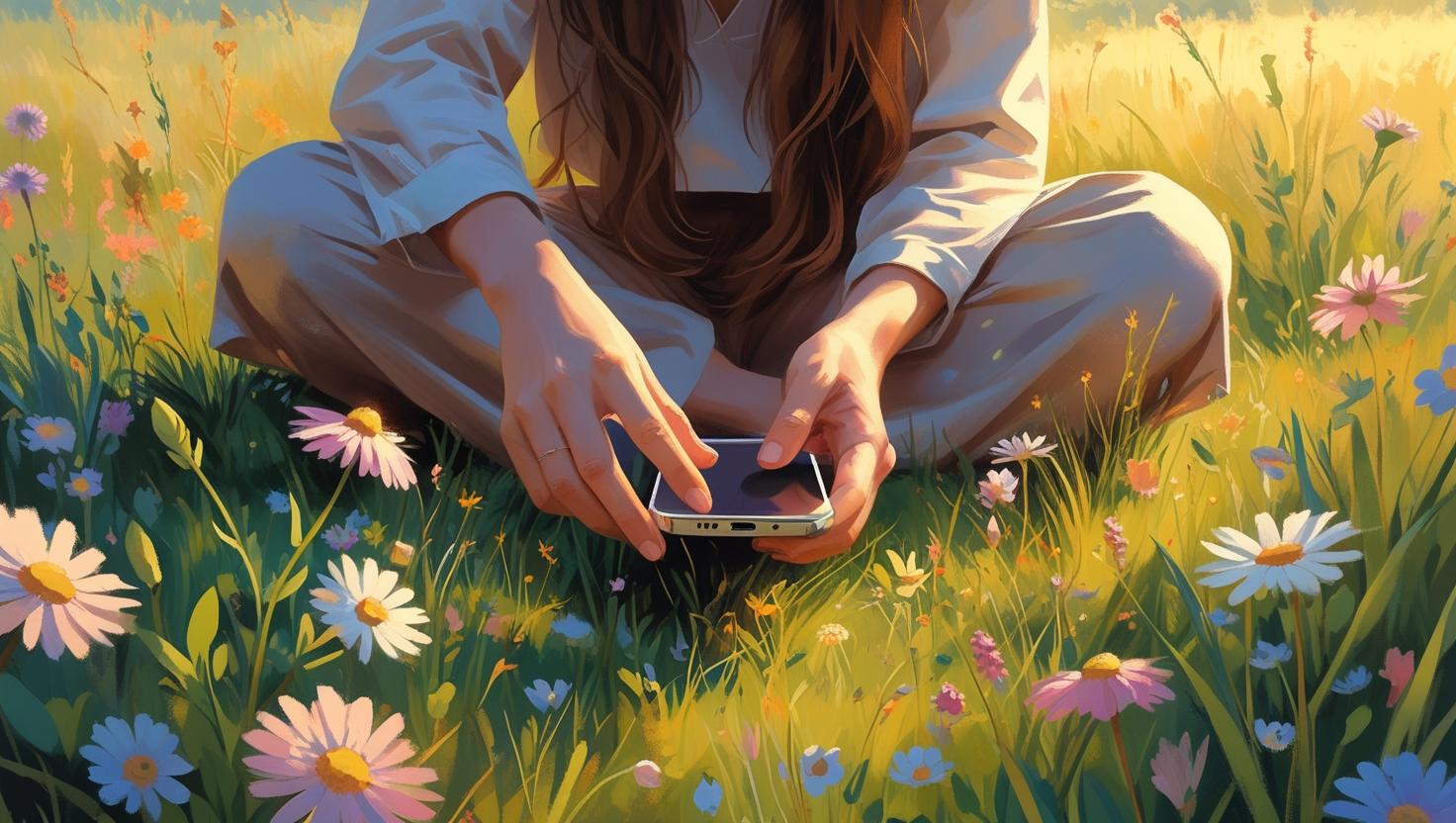
Image created with Canva AI
If you’ve ever said, “I just need a break,” but immediately grabbed your phone… this one’s for you. Unplugging isn’t about disappearing into the woods for a week (unless you want to). It’s about creating breathing room in a world that never stops buzzing, dinging, or updating. This beginner’s guide will help you ease into the habit without making it feel like punishment.
What Does “Unplugging” Even Mean?
Unplugging is simply stepping away from screens and digital noise. It doesn’t have to be all or nothing. You don’t need to toss your phone in a lake. Instead, it’s about being intentional with your time and attention.
Whether you want to scroll less, focus better, or just feel more human again—unplugging helps reset your brain and reconnect with your real life, not just your online one.
Why Unplug at All?
The world is loud. We get notifications for texts, emails, likes, breaking news, and even people going live on apps we forgot we had. All of that pulls our attention in a hundred directions. Over time, it can wear us out.
Some benefits of unplugging include
- Better sleep
- Improved mood and reduced anxiety
- More focus and creativity
- More time for the stuff that actually matters
Plus, you won’t be doomscrolling at 2 a.m. wondering why you feel so drained all the time.
Start Small and Keep It Real
You don’t have to go off-grid to see results. Start with baby steps that fit into your lifestyle.
Set “No Phone” Zones
Pick a few places where phones are off-limits. The dinner table, bedroom, or bathroom (yes, really) are great places to start.
Try a Tech-Free Hour
Choose one hour a day where you don’t use any screens. No phone, no laptop, no TV. Just you and the real world.
Turn Off Notifications
The constant pings are designed to keep you hooked. Turn off non-essential notifications or set your phone to “Do Not Disturb” during focus times.
Use Apps to Help You Unplug
Ironically, some apps help you use your phone less. Apps like Forest, Focus Keeper, and Freedom block distractions and keep you on track.
Plan Offline Activities
Fill the gap with something fun or productive. Read a book, go for a walk, cook a new recipe, or just sit on the porch and be for a minute.
Related: The Appeal of “Digital Detox” Weekends
How to Handle the Digital Detox Jitters
Let’s be honest—at first, you might reach for your phone without thinking. That’s normal. Your brain is used to the dopamine hits from scrolling. You’re not lazy or weak; it’s just how these tools are built.
Here are a few ways to get through that uncomfortable phase
- Keep your hands busy (journaling, doodling, knitting, etc.)
- Tell someone you’re unplugging for accountability
- Keep your phone in another room when possible
- Replace screen time with something that fills you up emotionally
The more you practice, the easier it gets.
Set Boundaries Without Guilt
You don’t owe anyone 24/7 access to you. Let folks know when you’ll be unavailable or off your phone, and don’t feel bad about it. Setting boundaries is healthy—and necessary.
Want a weekend unplugged? Tell your people. Taking one night a week away from screens? Block it off. Your well-being matters more than a quick text reply.
You Don’t Have to Be Perfect
Unplugging isn’t a competition. You’re not failing if you check your phone or binge-watch a show now and then. The goal isn’t perfection—it’s balance. Being more present, more mindful, and less reactive to every ding or scroll urge is progress.
Give yourself grace. Some days will feel easier than others. The point is to create space where your brain and soul can breathe.
Related: How to Create a Digital Detox Plan That Works
Final Thoughts
Unplugging doesn’t mean turning your back on the digital world—it just means not letting it run your life. Little by little, you can reclaim your time, energy, and focus. You’ll be amazed how much more grounded, creative, and calm you feel when you step away from the noise.
Lisa Crow contributed to this article. She is a true crime junkie and lifestyle blogger based in Waco, Texas. Lisa is the Head of Content at Gigi’s Ramblings and Southern Bred True Crime Junkie. She spends her free time traveling when she can and making memories with her large family which consists of six children and fifteen grandchildren.